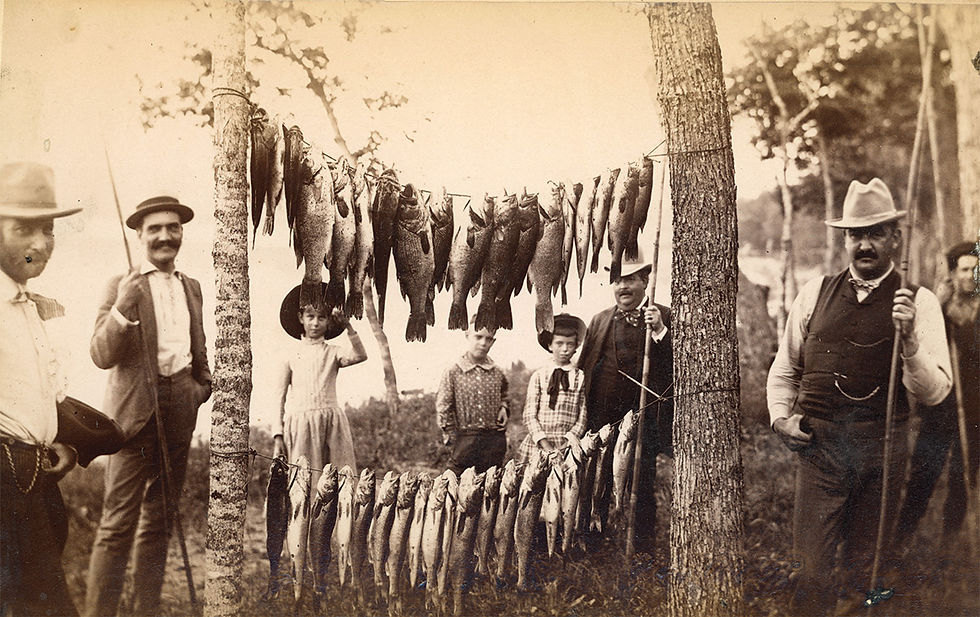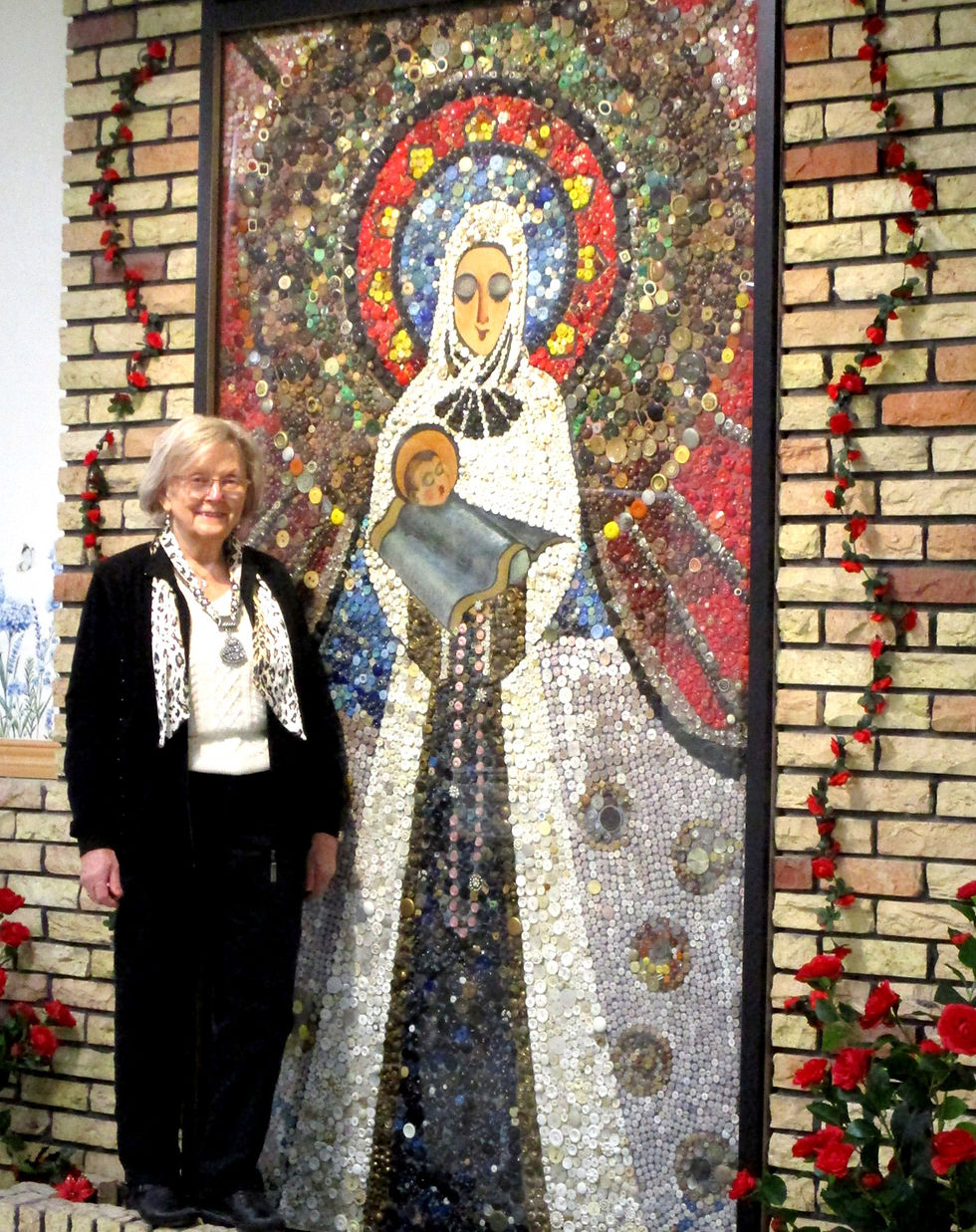Off the grid
- Sr Perspective

- May 31, 2023
- 6 min read
St. Cloud man lived in the woods with no modern perks for six months
By Bill Vossler
Jack Borsack of St. Cloud has done something that very very few people have ever done--or will ever do: live entirely off the grid for six months with no telephone, no radio, no electronics at all. “Our only contact with the outside world was through letters and weekly food brought up on mules,” he said.

Technically, Jack’s adventure began years earlier, as a youth living in San Diego, California. “I loved nature. As a kid I played a lot outdoors, taking leaves off trees and making up medical purposes for them. If I had a cut or scraped knee I rubbed an aloe plant on it to stop the sting; I learned from my nutritionist mom, who was heavily into muscle testing and vitamin eating. So I always loved all things natural and beautiful. And since San Diego is on the ocean, that‘s as nature-filled as you can get.”
The 22-year-old’s six-months-in-the-wild adventure began several years earlier, at 18, when he joined the California Conservation Corps. “That’s a two-year program for 18-25 year olds to travel around California doing conservation work, chopping down hazardous trees at community parks, gutting fuel near the fire line, picking up trash off the side of the road--whatever needed to be done.”
He said he was contracted to work for a variety of state parks, or the National Park Service. “So I got a feel for how government agencies are run, and learned to pick and choose according to that. I don’t mind a little extra hard work. In fact, I always tried to outshine and outwork the workers to the left and right of me.”
Which the supervisors noticed. “When I was 20, I got a call from Sean Moodie, a trail supervisor who runs a crew. He asked if I wanted to supervise and lead a crew of corps members for six months in Yosemite State Park. It’s hard to say no to something like that, and I said I would.”
Work in Yosemite National Park consists of two areas, Jack said, “There’s a Frontcountry Camp and a Backcountry Camp, and the work is similar--but the living conditions are drastically different. In Frontcountry, you have vehicle access, so after work you can drive to a store or a cellphone reception area. Frontcountry work consists of mainly rehabilitating old trails from rock slides, cutting down trees, moving rocks, fixing dry masonry, and mostly fixing, but not blazing new trails.”
On the other hand, Backcountry is remote and isolated. “That’s where you hike out 7-15 miles with everything you need for the next six months on your back. Tent, sleeping bag, clothes and so on.”
Jack said the National Park Service prioritizes safety for visitors and workers. “Safety is a big deal,” he said. “Before heading into the wilds, workers are given two-weeks of training--on how to properly move rocks, use a chainsaw, and so on. Safety is extremely important.”

“In the Backcountry, storms and fires have made some trails hazardous, nearly impossible for inexperienced hikers to navigate. That meant creating a new trail, using chainsaws, loppers, and blasting them open. Hard and time consuming, maybe a mile and a half in a day.”
“The days are long, and you get tired, and you’re moving 300-500 pound rocks with your fingers, and you can lose a finger if you’re not careful. Or trees can fall on you if you’re not using safe work practices. Depends on how serious workers take it.”
He said after a major fire a monoculture forms. “That is when one plant species takes over the entire area and workers have to combat the monoculture. Digging and fixing drains for easy water drainage off the trail is important too.”
Walls had to be fixed with dry stone masonry. “Using stones and stones alone because you aren’t going to carry cement or mortar 14 miles from base camp to make wet material to hold the rocks down. You stacked rocks to make the walls look good again and last for 100 years--just like old Roman roads made with dry stone masonry, and are still usable today.”
New Family
During that six-month period, nobody had any electronics. “Didn’t matter as the middle of Yosemite has no cell reception. So your main contact is through letters. Once a week, mules brought up coolers full of food and letters. Then they took down the long letters you wrote, like the ones in my sloppy handwriting to my mom and little sister, which might take three weeks to get to them. Eventually you‘d get an answer back on the back of a mule, but you never knew when.”
“You end up working with a dozen people that you know nothing about. At some point you might say, ‘What did I get myself into, spending six months with these people, sleeping in a tent 12 feet away, rising at 4 a.m., doing chores together, hiking together, working together, hiking back together, eating and talking together, and doing it all again and again. You become like family. With those twelve, I laughed and laughed and laughed, the hardest ever in my life.”
Like family, intense family arguments could erupt, Jack said. “Communication was key spending six months with people. They become very very close to you. I just called Joey, a buddy from that six months who I dearly miss. We reminisced for hours, including one time we had to run away from a wildfire that we didn’t know how far away it was, or where it was going. We had to hike for our dear lives.”
One aspect Jack loved was the total night darkness. “Oh my God, sometimes you could see the entire Milky Way Galaxy. I would lay on my back, absolutely blown away by the intensity of the stars. Intense. Just spectacular.”
Everyone slept alone in a one or two-person tent. “The smaller and lighter the better. Everything I had was in my tent, stacked with books and whatever else I might need.”
Food was packed in.
“Like Ramen noodles. I’ll probably never eat Ramen noodles ever again,” he laughed. “You had to hike with Spam and nonperishable canned goods on your back, like boxes of Mac and Cheese. Sometimes we actually got cooked potatoes, eggs and bacon, keeping those foods fresh in a cooler in a hole in the ground and laying a wet burlap sack on top. If you kept the burlap sacks consistently wet, the food would keep five or six days.”
At every new camp, the kitchen was constructed out of a big tarp tied over trees to make a dry area, and logs became chairs.
“To prevent wild animals from pilfering the food, we made sure someone slept in the kitchen at all times.”

Speaking of wild animals, Jack said they saw many black bears, among others.
“There were also rattlesnakes, mountain lions, lynxes, varmints, and deer. The deer were very docile, because it has been illegal to hunt them there for a century or more. You could almost walk up to them.”
Jack enjoyed pushing himself every day, and getting immersed in nature with the family of friends, and having their backs.
“We hiked great distances and saw the most remote places; on the weekends you got to explore. Florence Lake was so beautiful it seemed like I was on another planet. Adair Lake had golden trout, only found in high-elevation remote areas of the Sierra Nevadas; a prized fish to catch.”
The biggest problem was homesickness.
“People got desperate for the season to end so they could return home. They wanted a warm shower, instead of a cold lake or river after a long day of working and hiking. They wanted a warm bed, a warm easy meal, and driving to work. It got long up there. It really did.”
Moving to Minnesota
As a kid, Jack spent a lot of summers and winters at his grandmother’s place in Sauk Centre to get out of his mom’s hair.
“So I knew it was beautiful out here. I was fascinated how my relatives never thought twice about living, working, and driving in 20 below weather. During winter vacations here, I ran outside in a t-shirt and shorts, and walked barefoot in the snow to see how long I could stand the elements.”
This time, instead of coming to visit, Jack moved to Minnesota to stay.
“My grandmother was having open heart surgery, so I came out to Minnesota to help take care of her. For me it was a win-win, a soft place to land. And it was getting too expensive and chaotic to stay living in California, and unrealistic to live there any longer.”

Nevertheless, he found it very difficult to resign from the National Park Service.
“It felt like I burned a bridge there by leaving that amazing position. But that’s how life goes. I have no major regrets. I’m always living in the moment.”
Unfortunately, after a month of recovering from heart surgery, Jack’s grandmother succumbed to Covid.
Jack tried ice fishing, and misses immersing himself in nature.
“But I’m working at the first white-collar job in my life selling cars, and I’m enjoying not breaking my body and getting paid for my mind and not my body. But I miss nature a lot.”
Returning to civilization was difficult, Jack said.
“A big culture shock. After six months in Yosemite, people are rude to you in stores. Back in civilization, I slept with the window open for months and months, because I felt I was breathing bad air. In the National Park, your body really gets adapted to living in the woods.”
Jack, who recently turned 22, says he is grateful for his health, and grateful for his new life in Minnesota and his new job. I’ve been everything from a hippie blue-collar worker, and now I’m a white-collar car salesman smack in the middle of Minnesota. I’ve learned to adapt to situations.”




Comments